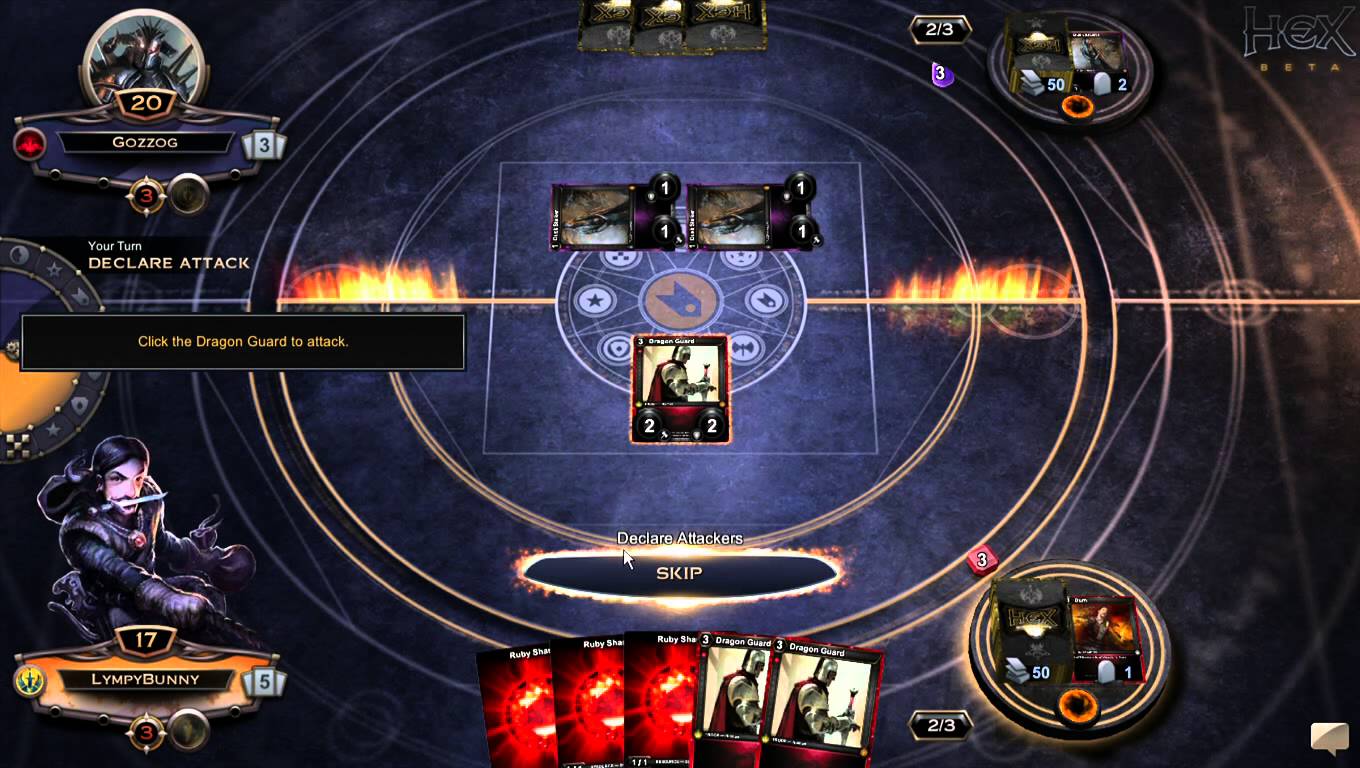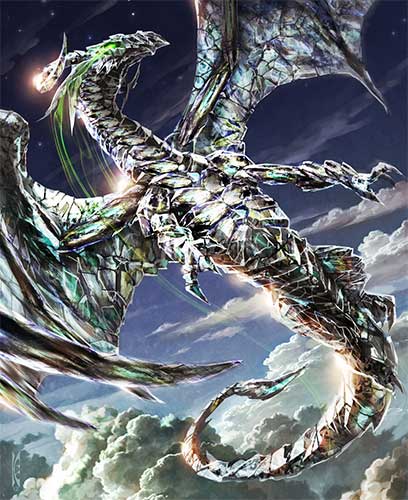

It's a free and repeatable series of challenges against up to twenty AI opponents for various rewards and functions as a sort've preview of the eventual full campaign. This makes your first port of call on a new account, the Frost Ring Arena, much more enjoyable. It means there's much more play to the game before any money or time is invested on improving. It's just one of a litany of cards that are miles above the power and complexity of what you start with in Hearthstone or Duels. I'll set up a defensive line of high health blockers and then quickly bomb my opponent out of the game once I've drawn it. My favourite card is the Volcannon, a five mana artifact that allows me to deal damage directly to opponents with my troops, rather than having to attack them. I'm quickly flooding the board with cheap artifact troops and dwarves which reduce the costs of my higher power cards or otherwise power them up.

You're unlikely to be competitive at the highest level, but there's strategy and decision making to be done even early on, at least with the blue sapphire and red ruby dwarf deck I picked up.

Unlike its peers, Hex immediately has you doing powerful, near-broken things with starter decks. It can't be understated how much this additional complexity adds, however. It's an excellent system from a card and game design point of view, just not one that was ever meant to be used in an online setting and after seeing alternatives, no matter how simple they make the game, I think I prefer them.

Against an auto-responding AI it's managable and Magic's real life equivalent gets away with it because body language, intuition and common sense speed things along. While it does a better job than Magic Online or Duels of the Planeswalkers, it takes so many additional clicks to get through a turn, going between combat and casting phases, allowing opponents spells to resolve or activating legions of abilities. The developers have done their best to streamline it but it's so slow compared to Hearthstone's superb ability to match whatever pace you wish to play at. Unfortunately, it's also the first of Hex's major problems. The depth this adds is immeasurable, particularly when combined with the concept of cards and creatures - Hex calls them Troops - which have a permanent place on the board but aren't focused purely on attacking your opponent. This means a finer degree of control is possible, with counter and kill spells that deal with opposing forces while protecting your own strategy. Hex uses a priority system that allows players to react to every action an opponent takes with any of their own cards and effects, as long as the card doesn't have the "Basic" rider which means they can only be played on your turn. If you're familiar with Hearthstone, this may seem overly complicated in comparison and it only increases from there. The nature of Hex is that there will be cards that break all these basic rules - giving you more mana or putting resources into play from your deck - which is where the fun begins. You can only play one resource a turn and your mana refreshes at the start of each of your turns. In general, cards have a threshold that must be met to be cast - so for example a card may have a cost of five and a red threshold of two, meaning at the most basic level you must have played five resources, two of which were red, to cast it. In turn these resources govern what types of cards can be played, each providing a colour threshold along with its mana.
Hex shards of fate terrorantula for free#
In Hex, decks are sixty cards, with around a quarter dedicated to resources that are played for free and increase your total mana pool, allowing you to cast more powerful spells. It's similar enough to the genre's most famous forebear that I feel like I'm already intimately familiar with its basic makeup, although it's from an unrelated design team who obviously follow different philosophies that result from Hex's purely digital nature. I've been a Magic: The Gathering player for the last five years and so Hex is a strange game to write about. Here's some thoughts after a few hours of play. While its single player campaign and the MMO portion's dungeons, raids and guilds are yet to materialise, Hex is onto a third set release of cards in a free to play model. Long before Hearthstone made it clear that digital cards were going to be a successful market, the gaming public pitched in two million dollars and change for the MMO/TCG hybrid. Hex: Shards of Fate was kickstarted successfully in mid-2013, hot on the cardboard-heels of developer Cryptozoic's final set of the physical WoW TCG.


 0 kommentar(er)
0 kommentar(er)
